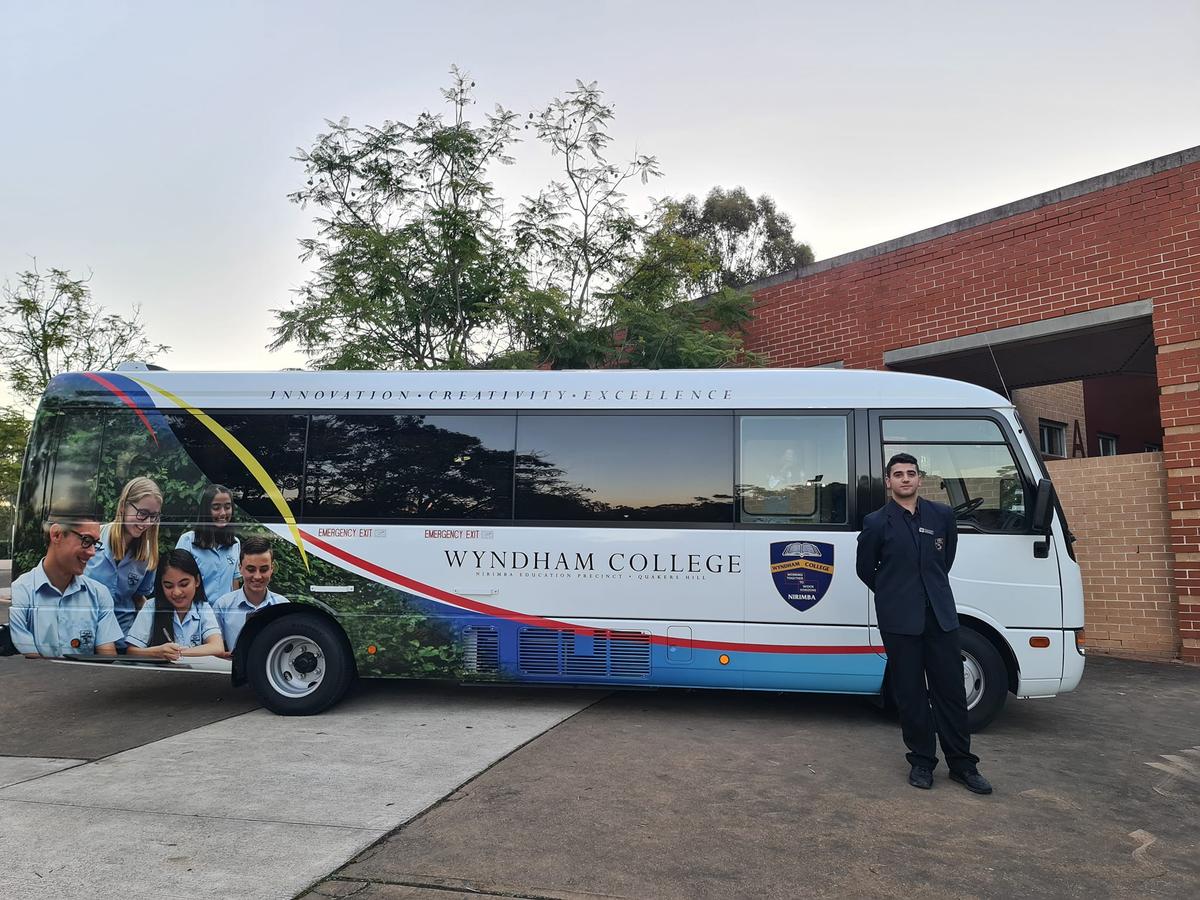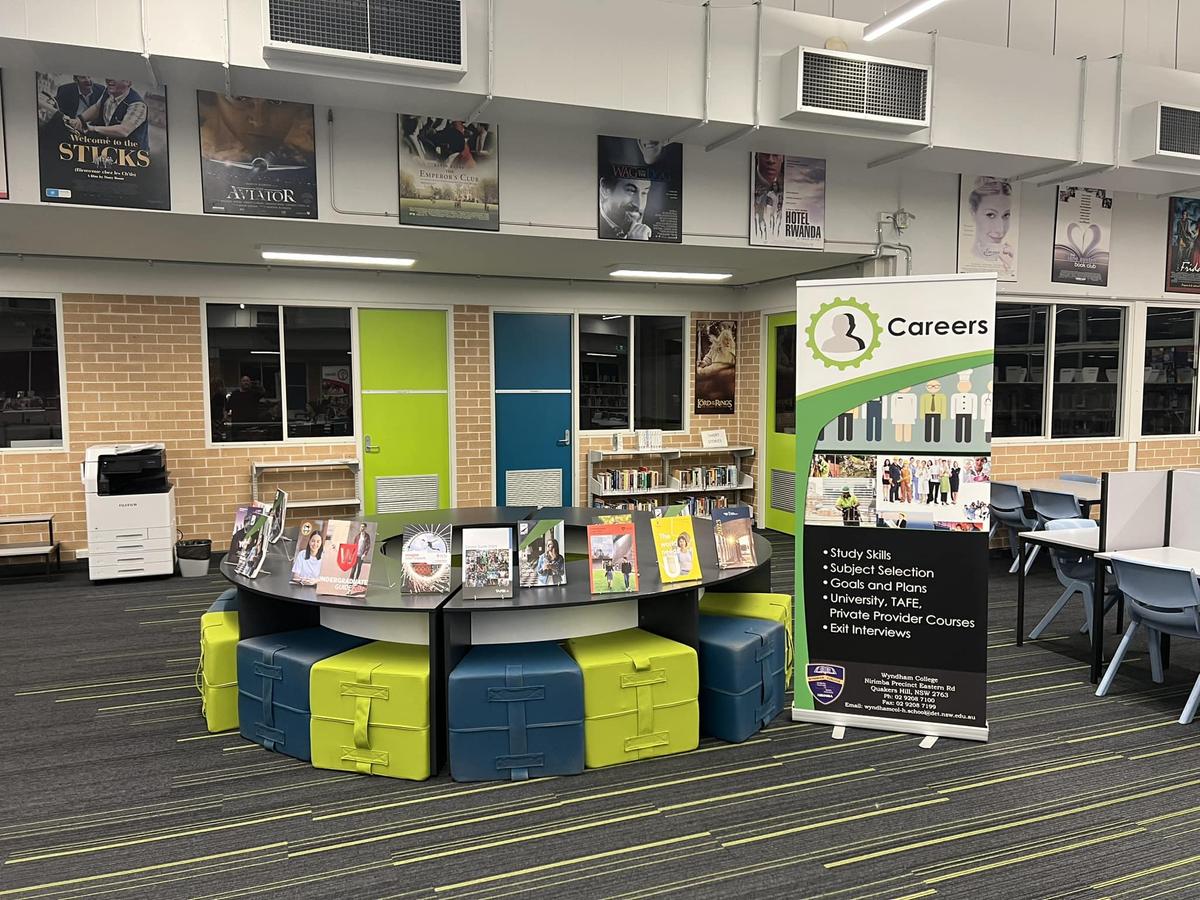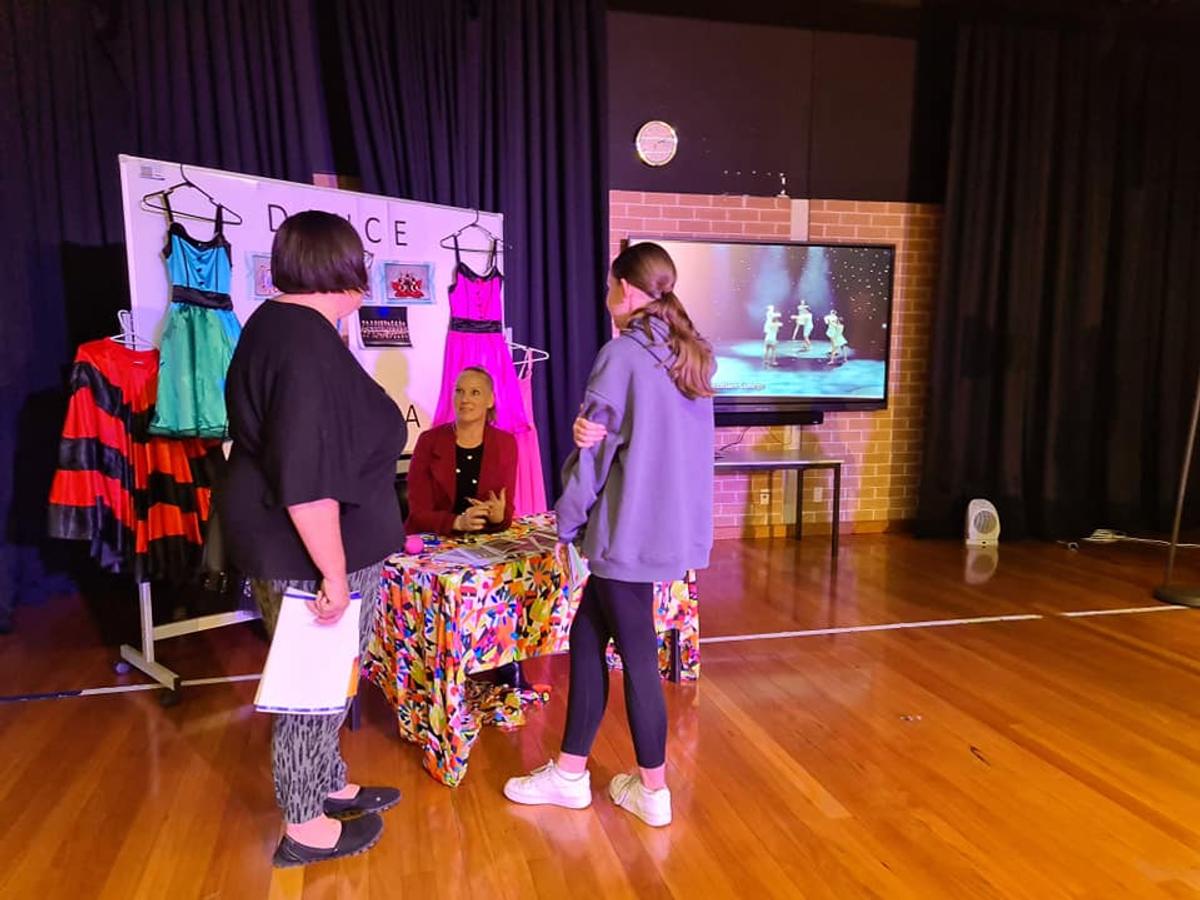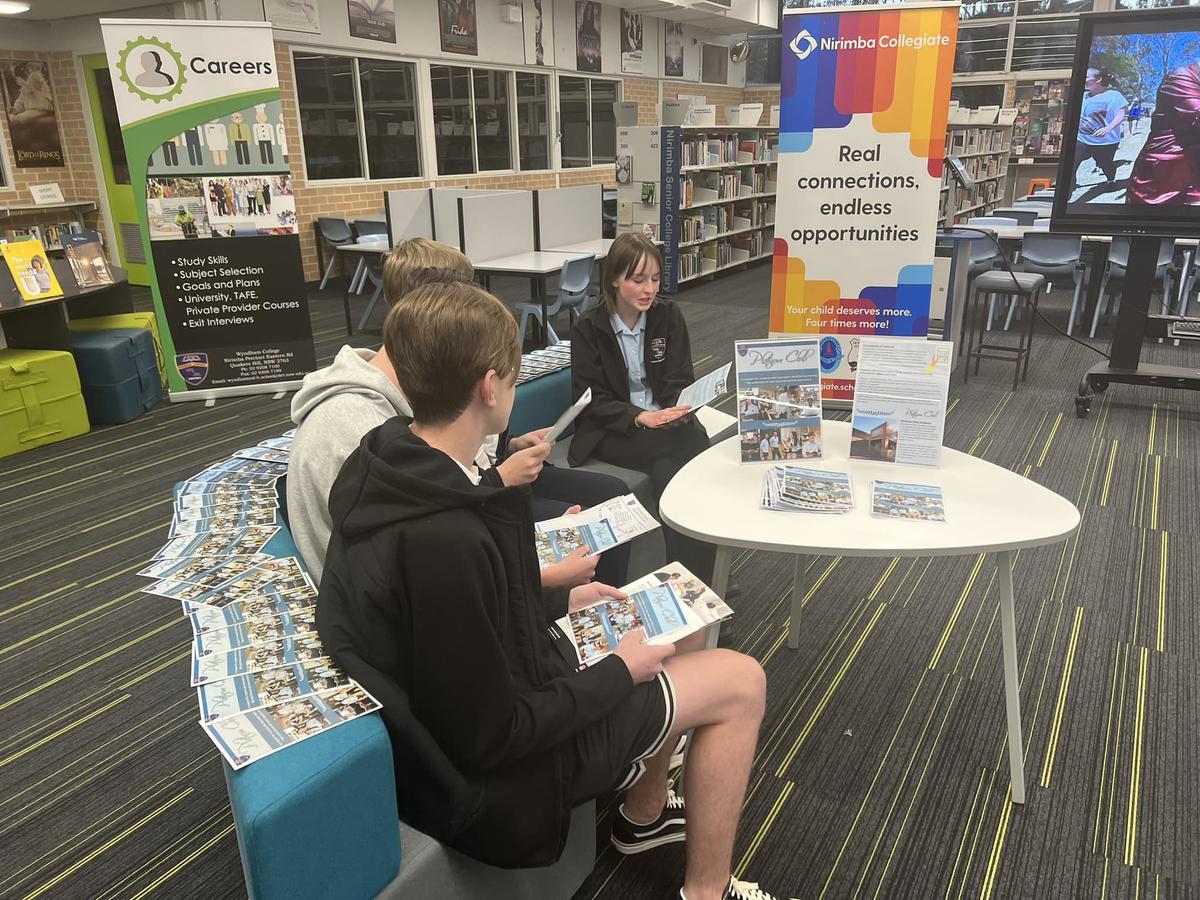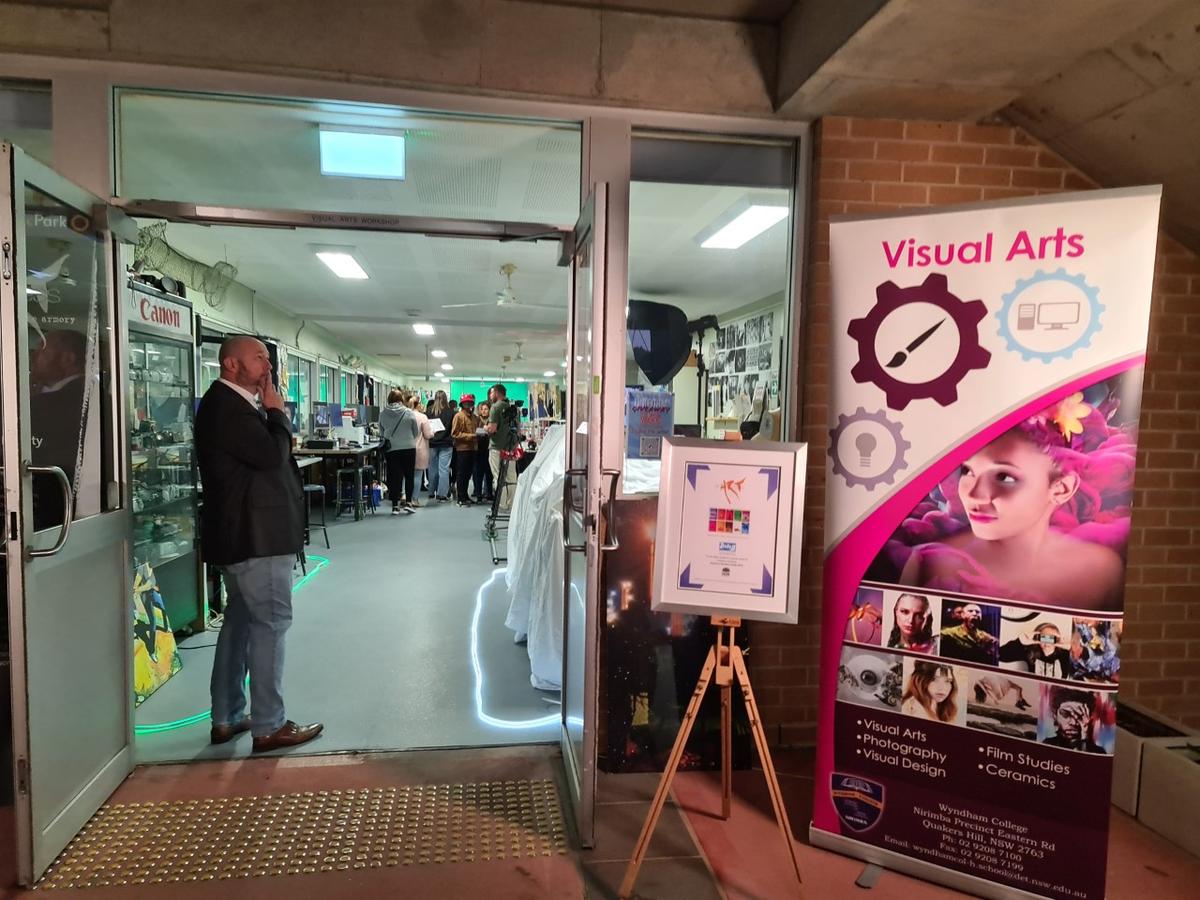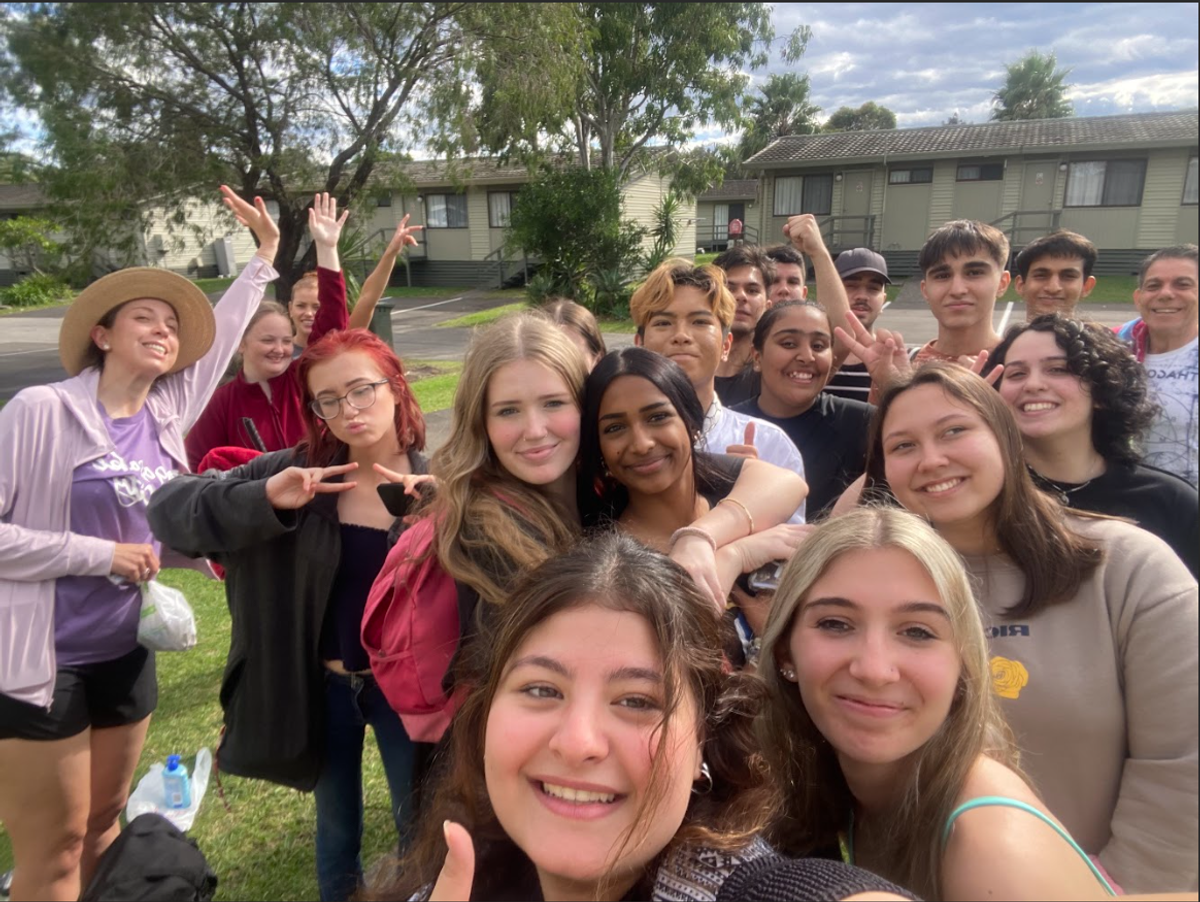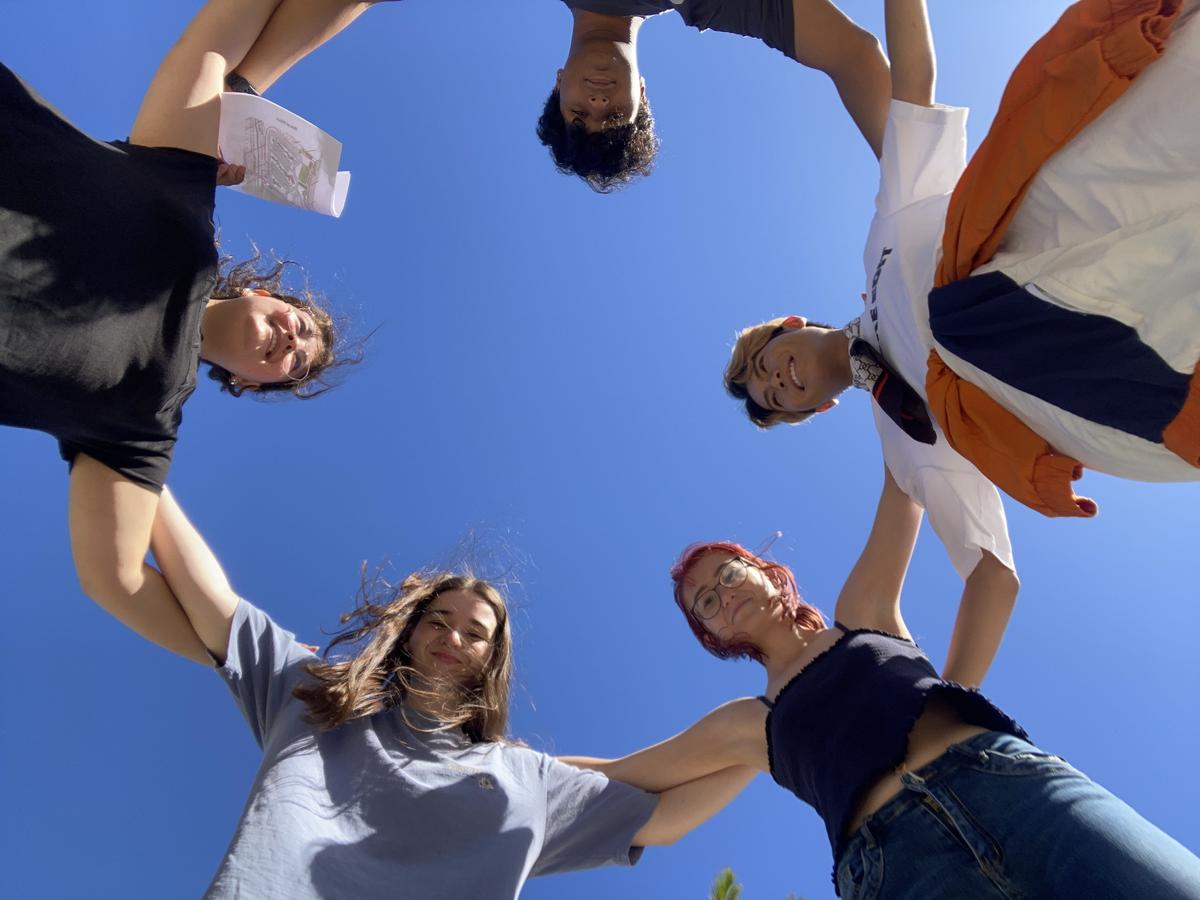COLLEGE NEWS

Wyndham College's Year 11 student Kiara Fleming was photographed during dawn service ANZAC Day Commemorations in Sydney on Tuesday 25 April 2023. She was featured in the Australian Newspaper, a 9news article and in ABC footage! If you see her, please congratulate her for her service.
Wyndham College Open Night 2023
SRC CAMP
The Wyndham College’s SRC Team held a two-day conference and camp at Wollongong Surf Leisure Resort. The aim was to come together and bond, while planning for future events and activities to be held during the academic year. The camp was an excellent opportunity for our school’s SRC to create strong friendships with their fellow mates, learn more about each other, all while developing their leadership skills, and learning to work together as a team.
To add fun to the camp, the students worked together to complete various team building activities. These activities included a scavenger hunt, a beach outing, and many games to encourage teamwork. They also got the chance to hear about the importance of mental health and wellbeing from Sara Imanian, learn about the SRC Constitution and gain knowledge on event management from Jessica Honda and Denis Vlismas.
The students were able to engage in meaningful conversations about their school and the various initiatives they could take to improve the College environment. While at the end of the camp, the SRC held a discussion to brainstorm ideas for future projects and events, like Wynfest, Wear it Purple Day, Naidoc Week, and many more. The camp was an overall success as it gave the SRC an opportunity to come together and collaborate, while also having a great time.
Understanding the Selfie Culture
Does the prevalence of selfies indicate a generation of secure, happy teens, confident in their worth and proud of who they are? Or is there something else at play?
“The emerging generation may be more self-promoting, but that’s not the same as self-worth."
What’s underlying the selfie?
There’s nothing particularly new or harmful about showing the world your beautiful family, personal achievements, or even best smile (Blue Steel anyone?). We’ve been doing it for decades, showcasing our best and proudest moments.
However, the emerging generation is taking it to the next level – many posting pics of themselves daily, even hourly, documenting their every movement. For some, it’s fun and social; for others it’s a desperate cry for affirmation and approval. Whatever the motive, let’s be clear:
Selfies are not the same as self-love.
For many teenagers, the selfie is fed by a desire to be loved, accepted, approved, and acknowledged. Validation becomes their highest need – and without it, there can be anxiety and despair.
“Validation becomes their highest need –and without it, there can be anxiety and despair.”
Does anybody like me?
In the 2021 MyStrengths Youth Wellbeing Report, over 10,000 teens were surveyed and 40% of them reported that they feel like social media helps their friendships and improves their connectedness. However, 24% said they felt it damaged their self-esteem or was not good for them. 42% of teenage girls report that they worry about the way they look, and the same number experience low self-esteem. Almost 25% of young men feel it too, and over 30% are actively worried about what other people think of them. In many ways, they use social media as the litmus test for popularity. It becomes a vehicle for finding acceptance, belonging and validation.
A short cut to self-love
As an adolescent therapist, I wish “likes” and popularity would bring self-love and contentedness. We could skip the hard yards of character formation and identity search and just get strategising on popularity growth. In fact, if 1000 likes instantly meant higher confidence and self-love, then I would personally pay the boost for every teen to get what they need – what a great use of money! Once the target is reached, WOO! A content, secure and loved young person.
But it doesn’t happen.
The reality is that forming our identity and self-love is complicated and hard work. There are many layers to our “self” and we are all on the journey of working out who we are and where we get our sense of value and self-worth.
3 building blocks for self-love
For parents and educators, there are a couple of very concrete, practical things we can do to enhance a teenager’s self-worth and security. We might think of these as building blocks for self-love rather than a formula that works every time.
1. Affirmation
Self-worth grows when a teenager senses that they are loved, respected, admired and affirmed – just the way they are.
Teens need to be constantly told that, “you are valuable; you have what it takes; I believe in you; and there’s nothing you can do to make me stop loving you.” We do this easily for younger children, but it’s not so instinctive when it comes to teens. However, it’s just as important. Your voice becomes their inner script. If they are constantly reminded of what they are getting wrong, where they are causing trouble or how they don’t measure up, it will affect the way they feel about themselves. Many educators and parents buy into the idea that if we don’t tell them where they are going wrong, they will be ignorant and not realise. But the truth is, most of our feedback is heavily weighted toward deficit, weakness and negativity and we struggle to affirm and build up the teens in our life. Affirmation is key.
2. Adopt strengths focus
Most teens know their weaknesses, but how many know their strengths? Every teenager has strengths. They are each unique and different. It’s incredibly powerful and formative to help a teenager identify what some of their best personality traits are. They will be different from you, but instead of this being frustrating or annoying, it can be a point of celebration and understanding. As adults, we can help teens discover their strengths, focus on them, grow them and encourage them. If we need a starting point, have your teen take the MyStrengths Assessment to discover their Top 5 Strengths – then use this as a catalyst for discussing and celebrating their uniqueness.
3. Develop your own healthy self-image
Values are caught and not taught. A great question is: What do my kids hear me say about myself? So many of us are critical of our own looks, ability, or intellect. I hear many adults calling themselves fat or ugly, dumb, or stupid. This may seem harmless, but teenagers are learning by osmosis. The way you view the world, yourself and your body is important in forming their own self-talk and self-image. They learn what is normal from you – and if it is self-critique, perfectionism and put down, that becomes their norm.
So:
- Even if your teenager shows a disregard for your affection, don’t take your foot off the pedal.
- Even if they appear over-confident, don’t knock them back to earth.
- Even if they shoot too many selfies, don’t mistake it for self-love.
Dan Hardie - Founder of MyStrengths
Coming soon…..Mobile phone ban in all NSW Government Schools
Some important aspects of the ban:
- It will apply during lunch and recess, as well as in class.
- Students will still be able to carry their phones while travelling to and from school.
- School staff can allow students to use their mobile phones in specific circumstances, such as for an educational purpose, their wellbeing or to support students with specific needs.
- Individual requests to exempt a student from the ban from parents, carers, or students, should be assessed, with alternative communication options considered.
The Department of Education will be supporting schools to enact the ban.
Term 3 will be used for familiarisation and further communication with the school community, and Term 4 is scheduled for the ban to commence.



